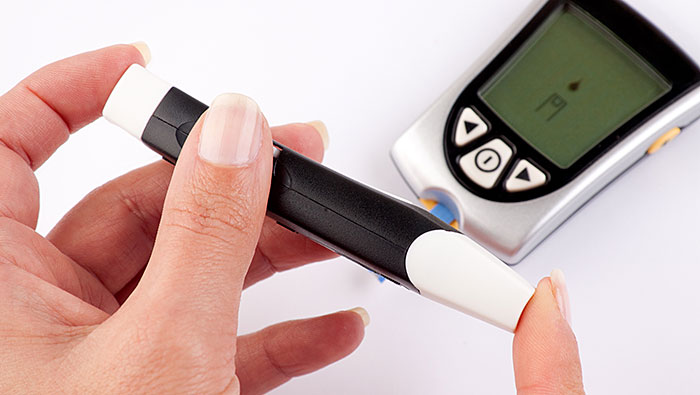Diabetes and Heart Disease

Diabetes seems to be everywhere – and it is. As many as 6 million adults in the U.S. may have diabetes and not even know it.
Why all the fuss? Adults with diabetes are two to four times more likely to have heart disease or a stroke than adults without the condition. But the good news is that by working with your healthcare provider, diabetes is highly controllable.
Types of Diabetes
-
Type 1 Diabetes
There are two types of diabetes. The less common of the two is type 1 diabetes, which occurs when the pancreas produces very little or no insulin. It is a life-long, chronic condition most often diagnosed in children. -
Type 2 Diabetes
The second form of diabetes, type 2, is the one everyone’s talking about, as the number of adolescents and adults developing the condition continues to skyrocket. Type 2 diabetes is far more common, with one in four developing the condition. It is still primarily diagnosed in middle-aged adults.
How does diabetes develop?
Most of what you eat is converted into glucose by your body and is then used for energy. In order to use glucose efficiently, the pancreas produces a hormone called insulin, which carries glucose from the blood into the cells of the body.
Diabetes results when either the pancreas doesn’t produce enough insulin or the body develops insulin resistance due to factors including:
- a diet high in refined sugars and carbohydrates,
- an inactive lifestyle or
- a family history of the disease.
When there is not enough insulin or the body does not use insulin efficiently, blood glucose levels build up in the bloodstream which, if left untreated, can lead to a host of life-threatening complications like kidney disease, unhealthy cholesterol levels, heart disease and stroke, just to name a few.
How do I know if I have diabetes?
It’s possible for symptoms to go unnoticed for years, so familiarize yourself with the warning signs of diabetes.
The warning signs of type 2 diabetes include:
- High blood pressure
- High cholesterol
- A family history of diabetes
- African American, Asian American, Latino/Hispanic-American, Native American or Pacific Islander descent
- A history of gestational diabetes (diabetes during pregnancy) or delivering a baby over 9 lbs.
If you any of these risk factors apply to you, or if you’re 45 and overweight, see your healthcare provider. They may use one or both of two tests available to determine whether you have diabetes: a Fasting Plasma Glucose Test (FPG) or an Oral Glucose Tolerance Test (OGTT).
What happens if I am diagnosed with diabetes?
If test results indicate you have diabetes, it’s not the end of the world. Think of it as a wake-up call and know you have the power to manage, or even reverse, the effects of the disease. Just make sure to work closely with your healthcare provider to create a treatment plan that’s right for you.





